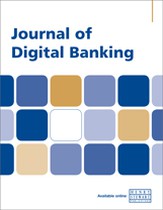Is algorithmic credit scoring a ‘high risk’?
Abstract
Current proposals of European regulations — the EU Artificial Intelligence Act and the UK pro-innovation approach to regulating artificial intelligence (AI) — either define credit scoring as a ‘high-risk’ application or mention credit scoring in the context of issues of ‘fairness’. Therefore, the question of whether algorithmic credit scoring is a ‘high risk’ might be a rhetorical one. Banks and lenders, however, have to comply with these proposed (and probably upcoming) regulations and explain that the current (and future) algorithms are compliant. This paper will use the — existing and indisputable — ‘gender pay gap’ together with a toy model of credit scoring based on income alone to discuss the regulatory requirements and the potential statistical methods to prove compliance. Although these regulations are triggered by the developments of ‘artificial intelligence’, all such tolls are nothing more than ‘statistical classifier’ and can be discussed — in a nutshell and with many simplifications — using this toy model. A closer examination of the statistical concepts reveals that simple correlations alone (eg a test of whether any outcome is independent of a sensitive parameter ‘gender’) cannot provide any answer about any ‘perpetuation of historical patterns of discrimination’ or any ‘fairness’. It requires advanced statistical methods (based on the concepts of mitigation and causality) to show that credit scoring is fully gender agnostic and, consequently, poses no risk to fundamental rights, as long as similar economic situations generally result in similar outcomes (score value or credit approvals). This argument, however, requires an understanding of advanced statistical approaches, and common misunderstandings can expose lenders to reputational risk. While banks and lenders have to use such advanced approaches to prove compliance, they have, in parallel, to communicate the underlying causality to the stakeholders in an understandable manner.
The full article is available to subscribers to the journal.
Author's Biography
Udo Milkau received his PhD from Goethe University, Frankfurt, and worked as a research scientist at major European research centres, including CERN, CEA de Saclay and GSI. After various management positions in the automotive industry, consulting and banking, he was Chief Digital Officer, Transaction Banking, at DZ BANK, Frankfurt. He chaired the Digitalisation Working Group and was a member of the Payments Services Working Group of the European Association of Cooperative Banks (EACB) and also a member of the Operation Managers Group of European Central Bank. He has been a part-time lecturer at Goethe University Frankfurt, Frankfurt School of Finance and Management, and currently at Baden-Wuerttemberg Cooperative State University (DHBW) Mosbach, Germany.
